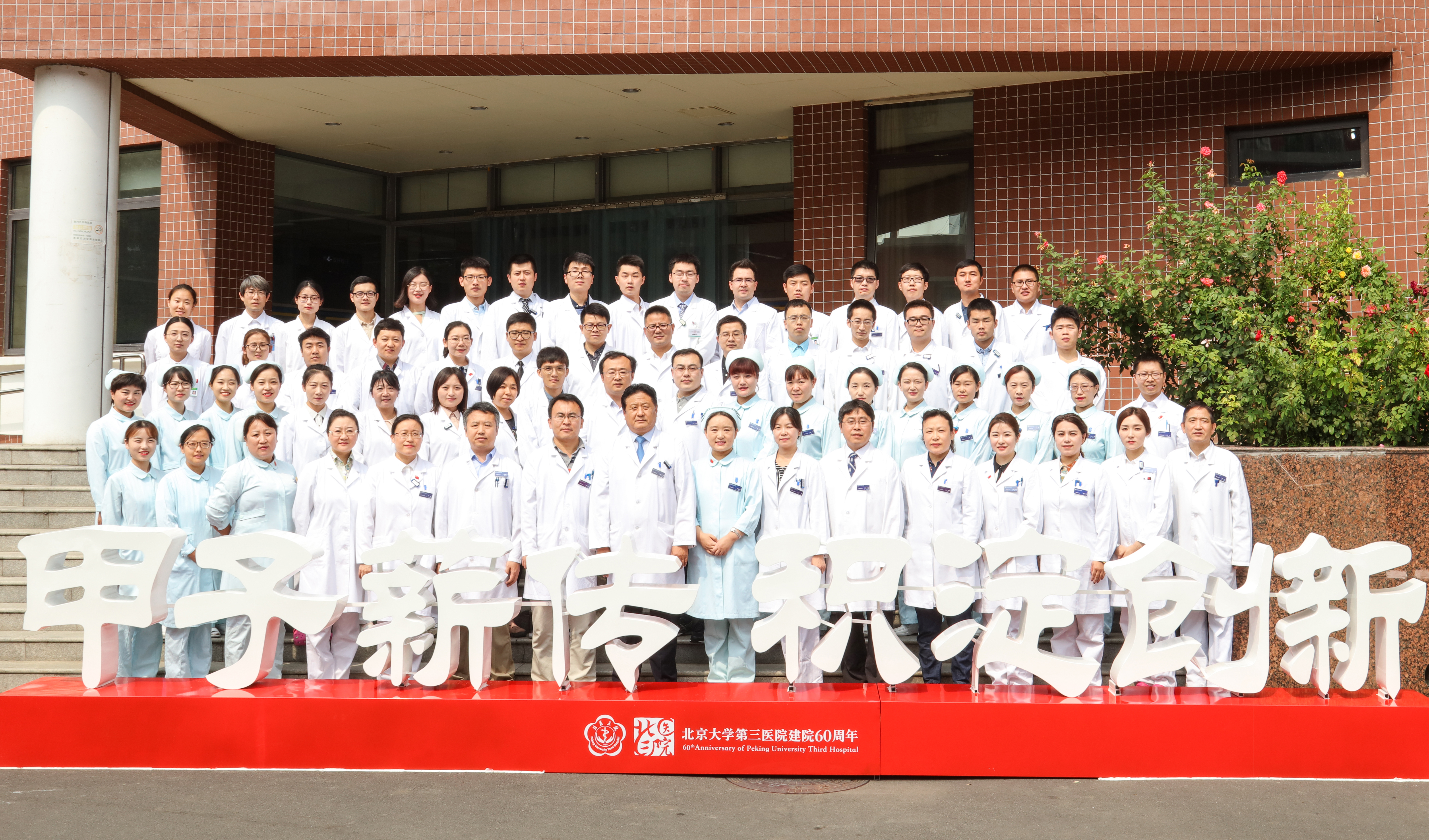The Department of Radiation Oncology of Peking University Third Hospital was firstly prepared and constructed by Prof. Junjie Wang in Jan. 1999. In Apr. 2001, A new independent department was established, and a formal agreement for cooperation was signed by Peking University Third Hospital and Beijing University of Chinese Medicine Third Affiliated Hospital (formerly known as the Beijing Metallurgical Hospital). From 2001 to 2014, the disease diagnosis and radiation treatment services were offered in both Beijing Metallurgical Hospital and the Party School Branch of Peking University Third Hospital. In July 2014, our department moved back to the main district of the hospital. In 2016, a specialized laboratory of our department was settled up.
The instruments in our department consist of all the main techniques that provide almost all treatment strategies in radiotherapy, including Varian Trilogy Linear Accelerator; Elekta Axesse Linear Accelerator; Iris CyberKnife; Varian Intracavitary After-loading Machine; Radioactive Seeds Implantation Equipment; Large Aperture Scanning CT; Hyperthermia Machine, etc.
Over the past 20 years from its establishment, our department devotes to the discipline developing and personnel training. Under the leadership of Prof. Wang, the department forms a professional team composed of 63 medical staff, including one professor of medicine, one professor of nursing, six associate professors and associate researchers, 18 intermediate titled employees.
We have four clinic subspecialties, including radioactive seeds implantation in head and neck tumors, CyberKnife in chest tumors, gynecological and breast tumors, and urological and gastrointestinal tumors. By sincere cooperation of doctors, physicists, technicians, nurses, and laboratory researchers, we could achieve the systematized, precise, and specialized treatment of cancer.
The department has won multiple research funds, including the National Key Research and Development Program of China, the General Program of National Natural Science Foundation of China, the Key Program of National Natural Science Foundation of China, the National Natural Science Fund for Distinguished Young Scholars, the Capital Characteristic Clinical Application Research Foundation, and the China Postdoctoral Science Foundation. The staff of the department has published over 200 academic papers with more than 60 papers cited by the Science Citation Index (SCI). Prof. Wang has published nine academic books, including Brachytherapy of Interstitial Radioactive Seed Implantation (first and second edition) and Brachytherapy of Interstitial Radioactive Seed Implantation in Prostate Cancer (first and second edition). He was awarded the Second Prize of Science and Technology Progress Award by the National Ministry of Education and the Third Prize of Chinese Medical Science Award. He was elected as the chairman of the Radiation Oncology Branch of the Beijing Medical Association in 2015-2017 and is the chairman-elect of the Radiation Oncology Branch of the Chinese Medical Association since 2017.
Scholarly communications and research training are also the focus of the department. More than 20 seminars, work-in-progress reports, and journal clubs are held every year. The department has held two annual meetings of the Radiation Oncology Branch of the Beijing Medical Association, 23 national training classes of brachytherapy, six training classes of comprehensive standardized treatment in gynecological tumors, and one training class in urological tumors. With quarterly physician refresher courses, the department has trained more than 3,000 physicians in total, and the number is still on the increase.
Since the foundation of the Radiation Oncology Department of Peking University Third Hospital, the department always cherishes constant innovations, pursues and pushes research frontiers, and trailblazes through difficulties. Under continuous improvement of therapeutic techniques, patient management, and service quality, the department will be a prominent and world-renowned radiation oncology center in the future.

 ENGLISH
ENGLISH